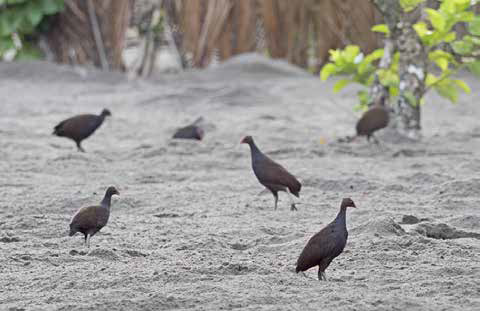The Lava Birds
The sound of our boat’s engine drowned out the vast silence of the South Pacific night. It was 4am and pitch black – the only thing I could see distinctly was the whiteness of the breakers crashing and spreading onto the shore.
We were on the Solomon Islands, at a place called Savo, to see a bird that lays its eggs in the ground, like a crocodile.
The embryos are warmed by the heat of volcanoes. When they hatch, the chicks, alone and unaided, have to scramble up – sometimes through 1.5m of sand – from the nest-grave in which their mothers have buried them. Parent and offspring will never knowingly meet.
The creature in question is called the Melanesian megapode – a ground-dwelling species, about the size of a chicken, with a small head, short brown wings and a spherical body that carries a deep, dark blue-black sheen. Its most notable feature is the size of its legs and feet, which explain that odd name – megapode means ‘big foot’.
Author: Mark Cocker
Publisher: BBC Wildlife
Date: June 27 2019

